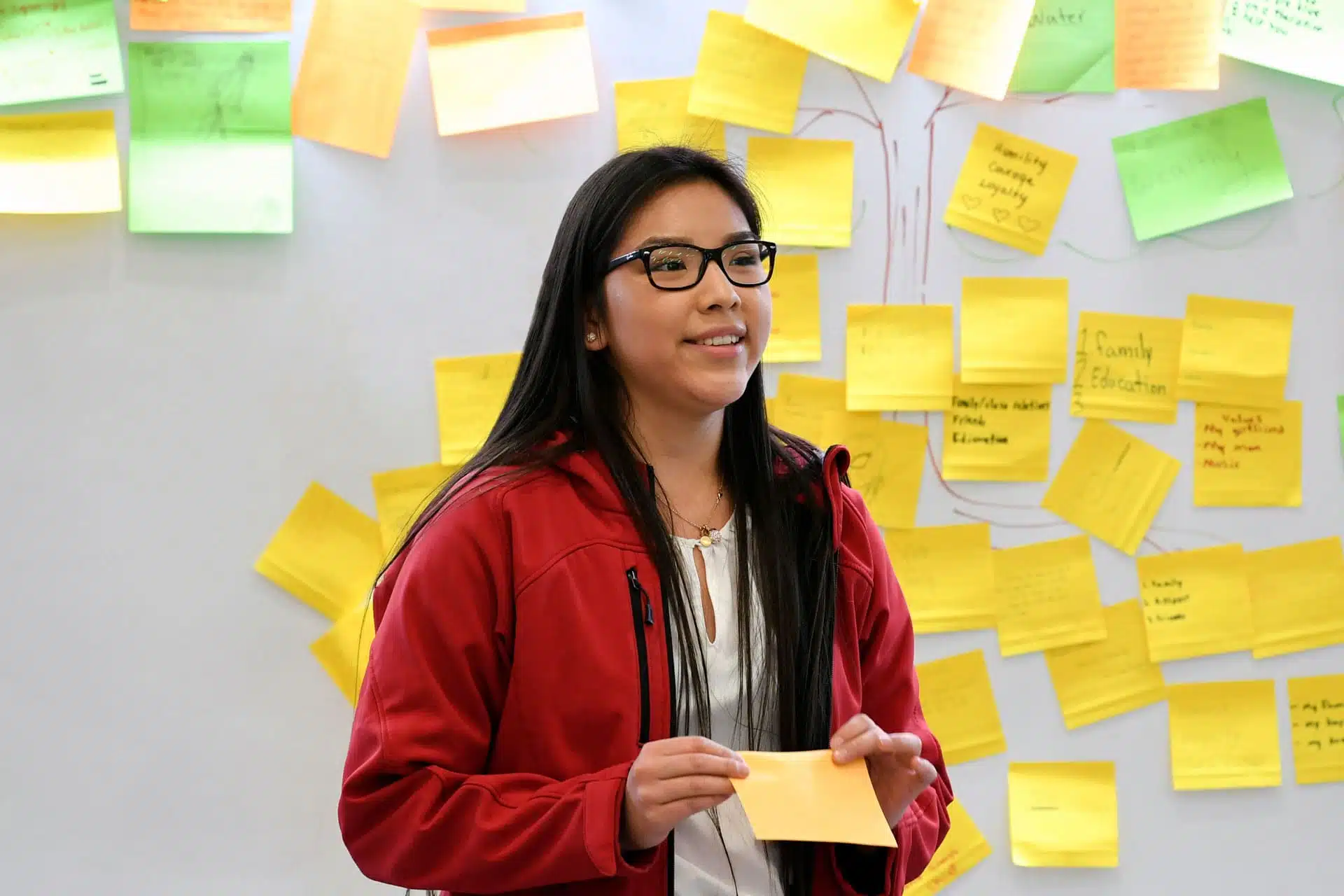Ever felt uncomfortable raising your hand in class? In your circle of friends, are you more of a listener than a talker? We get it: speaking up can sometimes be really challenging. Especially if you’re on the shy side, it can be really difficult to be your own cheerleader…but it’s an essential skill to have, especially as you go through college or university.
When you learn to speak up for yourself, amazing things begin to happen. You’ll get the most out of your academic journey by getting key info from TAs and profs – and speaking up in job interviews will help you stand out from the crowd and land your dream job. You’ll have healthier relationships and better self-esteem, and you’ll be better able to make good decisions about your own life and where you want it to go.
So if you’ve never heard of self-advocacy, it’s time to start! Even if you’re pretty comfortable speaking up, learning strong self-advocacy skills can make your life so much better. Our Rivers to Success program has created a great self-advocacy series that you should definitely check out. Here are some good ways to start:
Believe that you’re worth it ?
This might sometimes be harder than it sounds, but it’s super-important. You need to believe that you’re worth it – that your words, thoughts, and feelings matter. Only then can you really begin to shape your own life-path and speak up for yourself in meaningful ways. You’re here for a reason, and you matter.
Know yourself and what you need
What do you really want to do or be? What are the things or people you can’t live without? What brings you true happiness? Knowing the answers to these questions – answers which can change a lot when you’re young, by the way – will help you establish
Stay informed
Knowledge is power, so get informed! Never miss an opportunity to learn from others, even if it’s not always obvious what they have to teach. (For example, sometimes people are in your path to teach you how not to act.) Getting as much information out of every situation possible will make you a more well-rounded person – and more ready to advocate for yourself
Know your rights
This goes along with staying informed. If your school has a Code of Conduct, read it; if your community has a charter, read that too. Understanding what rights you’re entitled to can help you speak up if you feel that your rights are being threatened. (This is especially important if you basic human rights like the right to safety, shelter, health, and education aren’t being met…)
Ask for help
Part of self-advocacy is realizing that we’re all in this together, and none of us is perfect, so we all need to work together. Everyone needs help sometimes – yes, even perfectionists! – and so asking for help is an important way to advocate for yourself, even if it’s sometimes one of the hardest things to do. Whether it’s help with school or job-hunting advice or mental health support, don’t be afraid to ask.
Find good supports
This goes hand in hand with point 5. Asking for help will only work if you ask for the right kind of help: healthy, knowledgeable people with whom you feel safe and who will be able to give you accurate information in a mutually respectful way. These sources could be older family members, Elders, profs, counsellors, or mentors. Good support from folks like these can make all the difference to
Work on active listening
This is an excellent skill to develop and you can use it in any situation you’ll encounter in life. Active listening is when you actually prepare to listen, be alert for the verbal AND non-verbal info that you’re getting, and then giving appropriate responses. It’s really focusing on the speaker and their point of view, not just on what you have to say to them. And it’ll help you have better and more productive conversations, no matter who you’re talking to!
These are just a few tips to get you started on your self-advocacy journey, and we’ve got a lot more tips that can help you keep going – check them out here!


